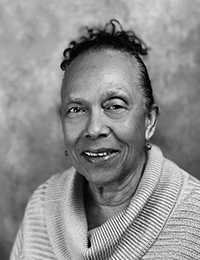From the Desk of Jack Kennedy III
Every month, I page through articles trying to uncover relevant content for our monthly newsletter. As of early yesterday, I had chosen and committed to "Eight Essentials Documents for Your Estate Plan." Then, suddenly an amazing friend and client of over 20 years changed my entire perspective of this month's newsletter and what it should represent.
Several years ago, this friend was concerned that his portfolio may not be aligned with his environmental and social values. Immediately, we dissected every investment. The investments that did not meet his moral and social litmus test were replaced with renewable energy, along with those that exercised environmental and social governance. Year after year, these investments were restraining the returns while under performing at every turn. My friend was passionate about staying the course and never compromising his core values for simply a better return.
Well, every dog has its day. Over the past 12 months, these dogs of the portfolio became the leader of the packs. They injected adrenaline that generated the best annual return in over 20 years. When I shared the results with my friend, he stated it was the best news he could possibly hear. Nothing could be better. I could feel his happiness through the phone, as if his favorite underdog team finally won the big game.
This month's article teaches us to never delay happiness:
1. Celebrate all of the little things and stop waiting for the big things.
2. Be present, appreciate what you have BEFORE you lose it.
3. Friends = Happiness, well-being and a longer life.
4. Never worry about the things you can't fix or control.
Finally, take a lesson from my friend; don't be afraid to place your faith in the underdog, especially if they are doing all of the little things right.
Thank you for allowing me and my team to share a part of life's precious moments, milestones and memories.
Best Regards,
Jack

Any opinions are those of Jack W. Kennedy and not necessarily those of RJFS or Raymond James. There is no guarantee that these statements, opinions or forecasts provided herein will prove to be correct. Past performance is not indicative of future results. Investing involves risk and you may incur a profit or loss regardless of strategy selected. Sector investments are companies engaged in business related to a specific sector. They are subject to fierce competition and their products and services may be subject to rapid obsolescence. There are additional risks associated with investing in an individual sector, including limited diversification.
A habit of contentment can lead to a lifetime of joy.
– Jack W. Kennedy III
Learn to Make Happiness a Habit
A habit of contentment can lead to a lifetime of joy.
We anticipate the upcoming weekend, the next promotion, the planned vacation, the long-awaited retirement. But while big, exciting plans can add a dose of excitement to our routines, making a conscious decision to celebrate the smaller moments that comprise our daily lives also can help us stay happy, grateful and fulfilled.
According to a Time magazine article on happiness, “The reason we are so hooked on getting things done is that we believe the payoff that comes from achievements – an award or a larger savings account – will ultimately lead to the biggest payoff of all: happiness. But it doesn’t.” Delaying happiness in favor of future achievements can perpetuate forever, leaving us continually searching for what’s next.
However, you can prioritize joy by taking simple steps. The following advice, gathered from psychologists, research studies and even ancient philosophers, can help you start cultivating a happier life whenever you’re ready.
Immerse yourself in the present
While multitasking is valuable, research has shown that being completely immersed in a task can help you feel more satisfied and increase your productivity. Preventing your mind from wandering can be tricky, but you can improve through practice. Some tips to help you stay in the present include focusing your attention on any given chore or object for 10 minutes at a time, engaging in meditation, or spending a half or full day without your phone or computer.
Imagine losing what you love
It may seem counterproductive, but numerous psychologists recommend what’s called negative visualization, according to a study in the Journal of Personality and Social Psychology. The practice of picturing – while not resigning yourself to – unfortunate scenarios can dramatically boost gratitude for current circumstances. In fact, the aforementioned study concluded that thinking about the absence of a positive event from our lives makes us feel even more grateful than reminiscing about a positive life event. Imagine never having met your partner or pretend you can no longer speak to your best friend. If doing so makes you feel even more grateful and relieved they’re in your life, you’re experiencing the benefits of effective negative visualization.
Embrace your social circle
The happier your relationships are, the happier your life will be. In addition to making you happier, a strong social circle can help you live longer. Author Dan Buettner partnered with National Geographic and the National Institute on Aging to study Blue Zones, areas where people disproportionately live beyond 100 at rates up to 10 times higher than other places. They found that in many of these zones, residents prioritize cultivating close relationships with those in their community, helping provide a sense of purpose and support that proved essential to their overall well-being.
An active social life can even help lower risks of heart problems and high blood pressure, lead to fewer incidences of cancer, and deter osteoporosis and rheumatoid arthritis, according to research from the Yale Medical Group. Staying social can also lower your risk for Alzheimer’s and mental health issues by helping strengthen connections in your brain. So if you need a reason to reach out to your friends, you have two: your happiness and well-being.
Sweat the big stuff
You’ve likely heard the famous quote by Erma Bombeck, “Worrying is like a rocking chair: It gives you something to do, but never gets you anywhere.” So why do we fixate on things we can’t control? One of the central beliefs of Stoicism – a revered ancient Greek school of philosophy – is that if something concerns us, we should ask ourselves: Can I fix it? If the answer is “yes,” focus on searching for a solution. If the answer is “no,” then there’s no point in dwelling on it.
This can be applied to many aspects of our lives, from stressing about a sudden thunderstorm ruining an outdoor event to fearing the gyrations of a market cycle. If something concerns us and it’s out of our control, the best we can do is prepare for the worst, while keeping in mind that no amount of worrying will change the outcome. Once you’ve taken thoughtful precautions to assuage your fears, it’s time to turn your attention to more productive matters.
Sources: bakadesuyo.com; Time magazine; Journal of Personality and Social Psychology
All expressions of opinion reflect the judgment of Raymond James & Associates, Inc. and are subject to change. There is no assurance any of the trends mentioned will continue or that any of the forecasts mentioned will occur. Economic and market conditions are subject to change. Investing involves risk including the possible loss of capital. The S&P 500 is an unmanaged index of 500 widely held stocks. It is not possible to invest directly in an index. The market performance noted does not include fees and charges which would affect an investor’s returns. Past performance may not be indicative of future results.
Investment products are: not deposits, not FDIC/NCUA insured, not insured by any government agency, not bank guaranteed, subject to risk and may lose value. Raymond James financial advisors do not render legal or tax advice. Please consult a qualified professional regarding legal or tax advice.


 Maggie Slivinski
Maggie Slivinski Steve Corbo
Steve Corbo Alexandra Rao
Alexandra Rao Alexa Comey
Alexa Comey Gene Donato
Gene Donato Jack W. Kennedy III, CFP®, AAMS®
Jack W. Kennedy III, CFP®, AAMS® Henry (Hank) J. Schroeder, CFP®
Henry (Hank) J. Schroeder, CFP® Diane Gallagher
Diane Gallagher Scott Bernstiel
Scott Bernstiel Chrissy Carpenter
Chrissy Carpenter David Strout
David Strout Keith R. Hering AAMS®, CRPS®, CIMA®
Keith R. Hering AAMS®, CRPS®, CIMA®  Marjorie Onuwa
Marjorie Onuwa